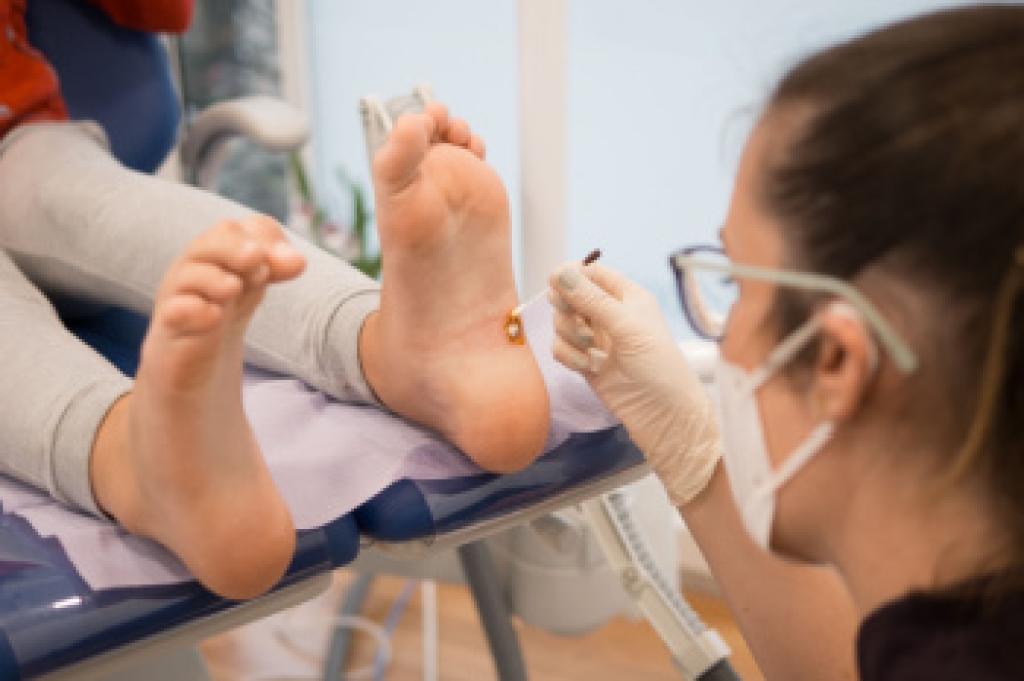
Plantar warts are small growths that appear on the soles of the feet, caused by the human papillomavirus, or HPV, entering through tiny cuts or breaks in the skin. They often develop on weight-bearing areas such as the heel or ball of the foot, causing discomfort or pain when standing or walking. Plantar warts may look like rough, grainy bumps with tiny black dots, which are clotted blood vessels. The skin around the wart can become thickened or callused, making it difficult to see the wart clearly. These warts can spread through direct contact or shared surfaces like locker rooms and showers. A podiatrist can diagnose plantar warts through a physical examination and may use specialized tools to distinguish them from corns or calluses. Treatment options include topical medications or minor procedures to remove the wart. If you are dealing with plantar warts it is suggested that you make an appointment with a podiatrist to safely and effectively treat the condition.
Plantar warts can be very uncomfortable. If you need your feet checked, contact Braden Jenkins, DPM from The Ridge Foot & Ankle Center. Our doctor will assist you with all of your foot and ankle needs.
About Plantar Warts
Plantar warts are the result of HPV, or human papillomavirus, getting into open wounds on the feet. They are mostly found on the heels or balls of the feet.
While plantar warts are generally harmless, those experiencing excessive pain or those suffering from diabetes or a compromised immune system require immediate medical care. Plantar warts are easily diagnosed, usually through scraping off a bit of rough skin or by getting a biopsy.
Symptoms
- Lesions on the bottom of your feet, usually rough and grainy
- Hard or thick callused spots
- Wart seeds, which are small clotted blood vessels that look like little black spots
- Pain, discomfort, or tenderness of your feet when walking or standing
Treatment
- Freezing
- Electric tool removal
- Laser Treatment
- Topical Creams (prescription only)
- Over-the-counter medications
To help prevent developing plantar warts, avoid walking barefoot over abrasive surfaces that can cause cuts or wounds for HPV to get into. Avoiding direct contact with other warts, as well as not picking or rubbing existing warts, can help prevent the further spread of plantar warts. However, if you think you have developed plantar warts, speak to your podiatrist. He or she can diagnose the warts on your feet and recommend the appropriate treatment options.
If you have any questions, please feel free to contact our office located in Idaho Falls, ID . We offer the newest diagnostic and treatment technologies for all your foot care needs.
